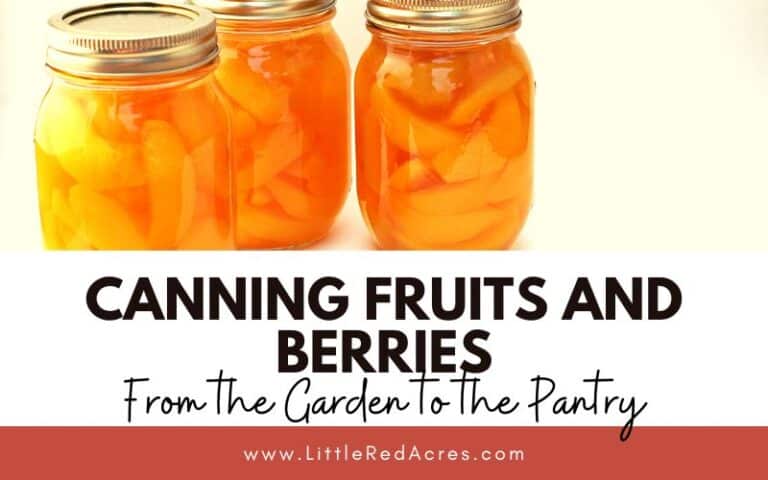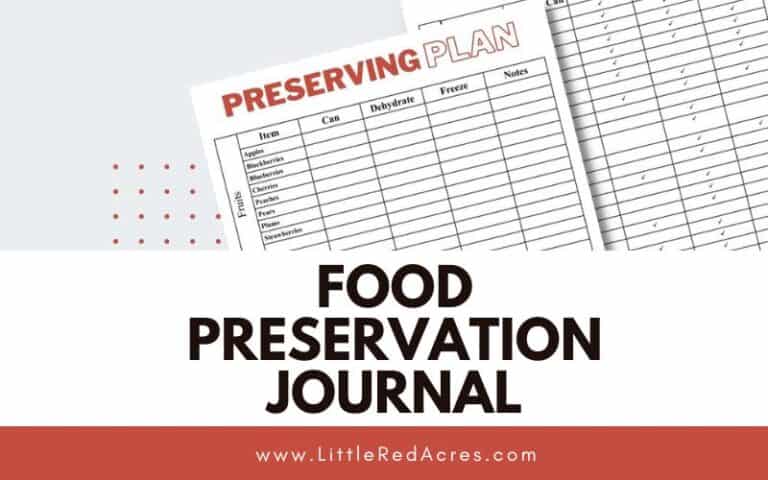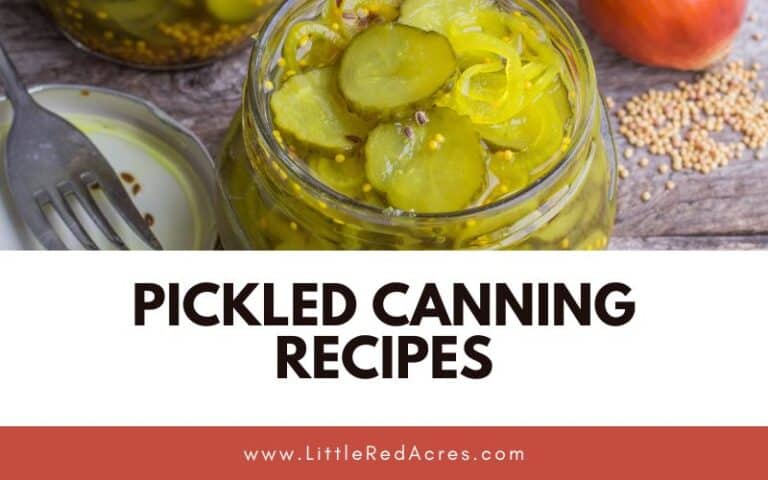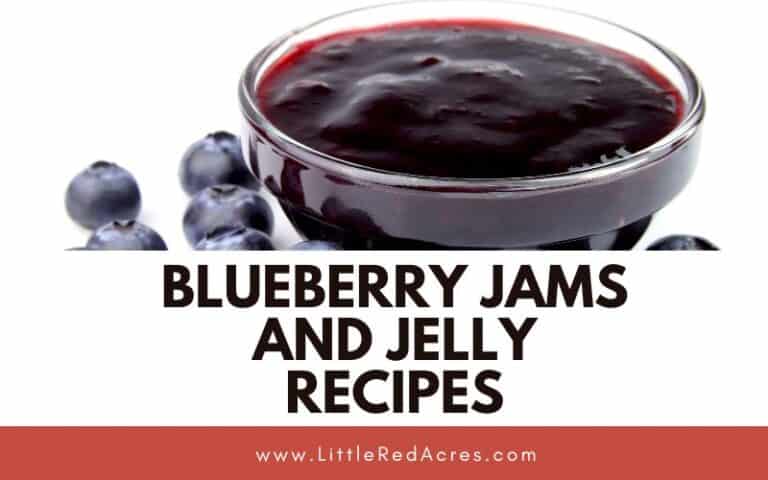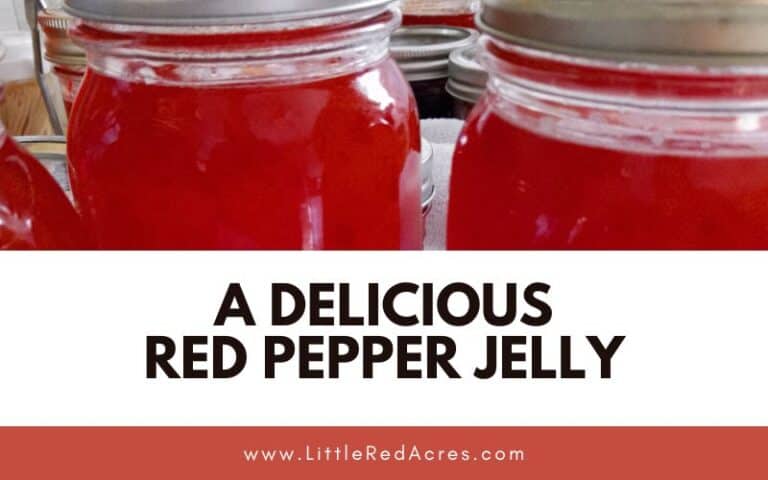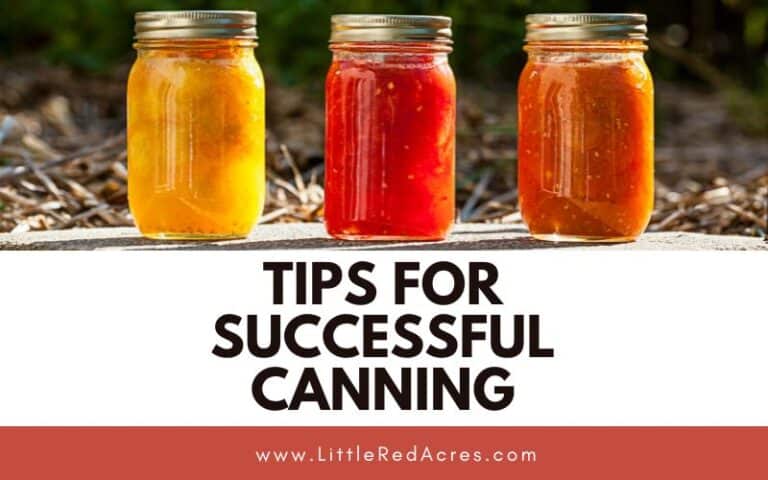From Garden to Jar: How Does Canning Preserve Food?
Inside: Learn how canning preserves food‘s flavor and freshness. Explore the science behind canning to keep garden goodness in every jar.
Canning is a time-honored method of preserving the bounties of our gardens and orchards. It's a culinary tradition that has been passed down through generations, allowing us to enjoy the flavors of summer well into the winter months.
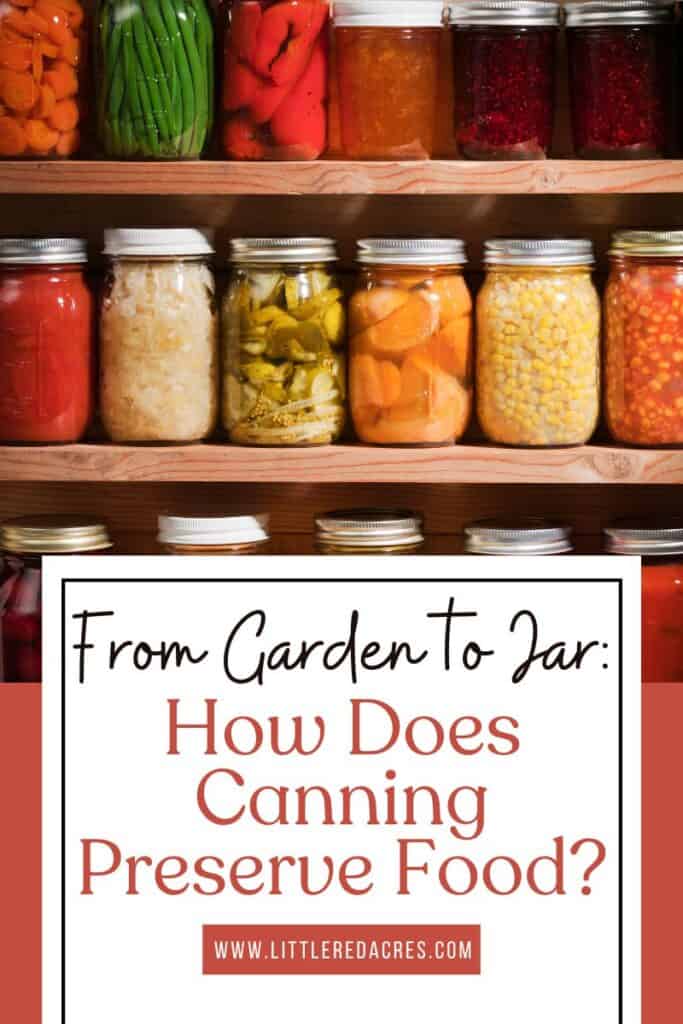
This post may contain affiliate links, see my disclosure policy for more information.
From Garden to Jar: How Does Canning Preserve Food?
But how does canning work its magic, keeping food fresh and flavorful? Let's dive deep into the canning process, explore the importance of proper techniques, and discover the science behind how heat and acidity come together to preserve food. We'll also provide tips for successful canning and shed light on the many benefits of enjoying home-canned delights.
The Canning Process: A Brief Overview
Canning is a process that involves sealing food in airtight containers, typically glass jars, to prevent the growth of bacteria, yeasts, and molds. This preservation method has been used for centuries, allowing people to store food safely without the need for refrigeration.
You will have your great-grandmother's recipes that your family has enjoyed for years, and then some recipes come after 1988 that are considered FDA-approved. I use both. You have to make sure you do what is safe for your family.
Successful canning requires precision and adherence to proper techniques. Failing to follow guidelines can lead to food spoilage or contamination. Proper canning ensures that the food remains safe to eat and retains its quality over time.
You do not want to risk botulism.
How Heat and Acidity Preserve Food
The heart of canning lies in heat and acidity. High temperatures, achieved through methods like water bath canning or pressure canning, destroy microorganisms that can spoil food. Acidity, often achieved through the addition of lemon juice or vinegar, creates an environment where harmful bacteria can't thrive.
Tips for Successful Canning
There are many tips you will get from friends and family, but here is a quick overview to get you started.
- Use high-quality, fresh produce for canning.
- Follow approved canning recipes and processing times.
- Properly sterilize jars and lids before use.
- Ensure a tight seal to prevent air and contaminants from entering.
- Store canned goods in a cool, dark, and dry place.
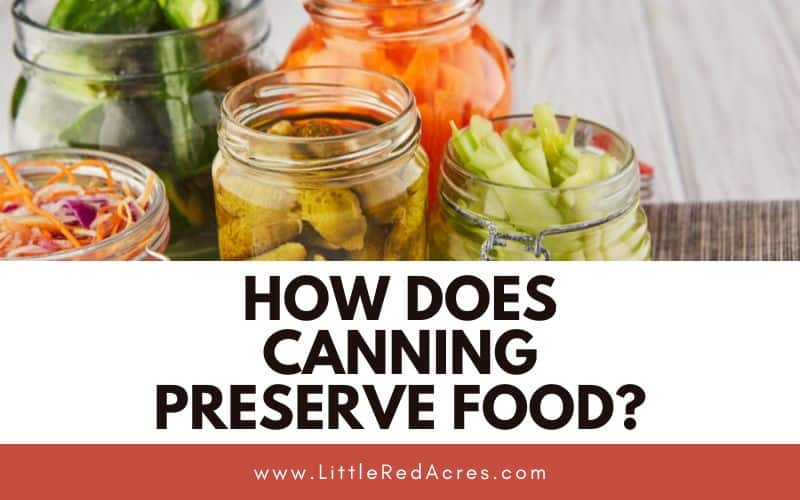
Benefits of Canned Food
Canned food offers numerous advantages, making it a valuable addition to your pantry.
Preserve Food for Longer Periods
Canning significantly extends the shelf life of food, allowing you to enjoy your garden's harvest throughout the year. Home-canned goods can last for several years when stored properly. This is why people can for self-sufficiency.
Eliminate Bacteria and Yeast Growth
The canning process effectively eliminates harmful bacteria and yeast, ensuring the safety of your stored food. This preservation method prevents spoilage and foodborne illnesses. Which is why it's important to use the proper canning method and the proper cook times. You need to get the heat through out the jar of food.
Maintain Vitamins and Minerals Content
Contrary to popular belief, canned food retains much of its nutritional value. The high-heat process can cause slight nutrient loss, but it also locks in vitamins and minerals by preventing oxidation. Not to mention that we are often using the freshest ingredients!
Ensure Freshness and Quality
When you open a jar of home-canned food, you're greeted with the taste of fresh, ripe produce, even in the dead of winter. The quality and flavor of properly canned food are often superior to store-bought alternatives.
And you don't have all those extra ingredients in your homemade food that is in the store-bought alternatives.
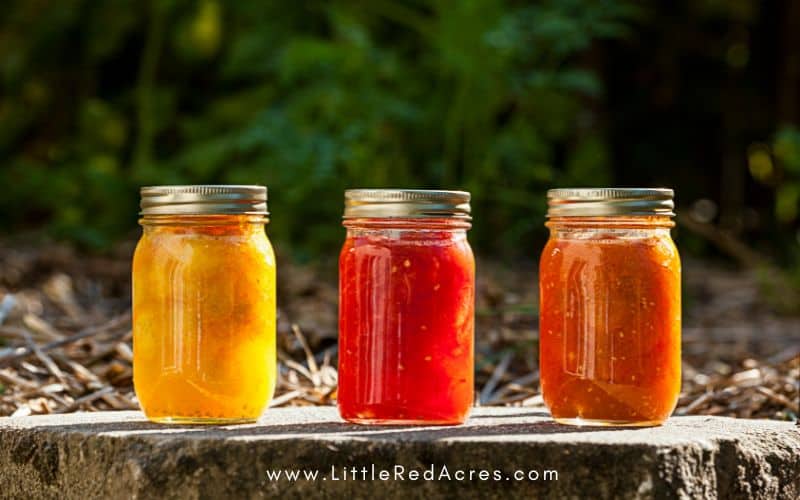
Promote Self-Sufficiency and Sustainability
Canning promotes self-sufficiency by allowing you to take control of your food supply. It reduces reliance on store-bought, commercially canned goods and encourages sustainable practices by reducing food waste. You know you are going to be reusing those jars again and again.
Canning is not just a preservation method; it's a celebration of seasonal abundance and a testament to the enduring connection between the garden and the kitchen.
Understanding the science behind canning, the importance of proper techniques, and the numerous benefits it offers allows us to savor the flavors of summer all year long. Whether you're an experienced canner or just starting, embrace the art of canning and enjoy the fruits of your labor well beyond the harvest season.
Frequently Asked Questions
How long does canning preserve food? If preserved correctly, homemade canned foods won't go bad ever! But realistically speaking, it can last for at least 2 to 5 years easily without compromising on the taste or nutritional value.
What method is not recommended for canning? Open kettle canning is not recommended. This method is also known as cold packing and no matter what you call it this way of canning is not recommended. With open kettle canning, food is first cooked in a pan and then put into jars. The lids are quickly put in place and no further processing takes place.


